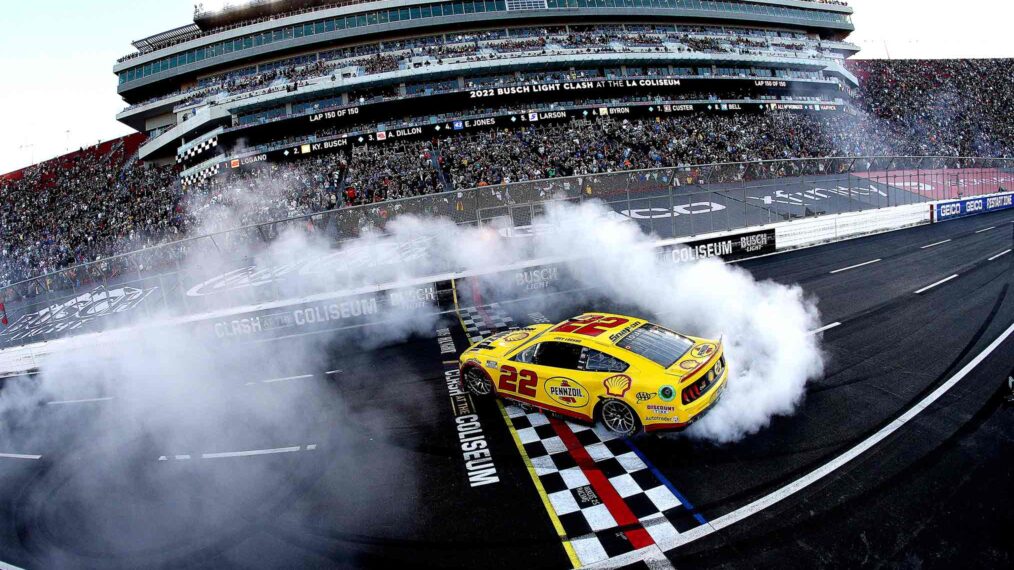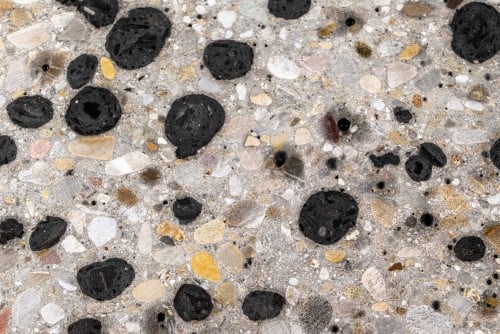Helen Mirren hasn’t played that many historical characters in her storied career. But somehow when she has, she not only brings exemplary acting skill but also an imposing regality, obviously handy when she’s playing monarchs like queens Elizabeth I and II as well as Catherine the Great. That said, surely I’m not the only viewer who has felt that sometimes her portrayals of, say, Alma Hitchcock (in Hitchcock) or Hedda Hopper (Trumbo) are flattering to the women she’s impersonating because Mirren, in addition to being a great performer, is and always has been a great beauty. Her Elizabeth I in The Audience and The Queen, both written by The Crown’s creator Peter Morgan, is the OG screen Lilibet — wry, haughty … and too glam by half, even in a dowdy Barbour jacket and headscarf. Cheekbones will out.
Intriguingly, for her latest performance as a great lady from history, playing Israel’s Prime Minister Golda Meir, Mirren has finally opted to go full frump. Encased literally head to toe in latex and lumps, from the center-parted greying wig down to the cankle prosthetics just above a pair of Meir’s signature “Golda” shoes (laced pumps that now seem retro chic, like something from the recent Rodarte collection), Mirren is barely legible. She’s so unrecognizable that you wonder if they couldn’t have just animated the character with visual effects and had her do the voice. It could be practically anybody under all that make-up — Judi Dench, Lupita Nyong’o, Timothée Chalamet — which is not to say that hair-make-up-prosthetics artist Karen Hartley Thomas doesn’t deserve lavish praise for her accomplishment here.
Golda
The Bottom Line
A lumps-and-all showcase for Mirren and makeup.
Venue: Berlin Film Festival (Berlinale Special)
Cast: Helen Mirren, Camille Cottin, Liev Schreiber, Ellie Piercy, Rami Heuberger, Lior Ashkenazi, Dominic Mafham, Ed Stoppard, Henry Goodman
Director: Guy Nattiv
Screenwriter: Nicholas Martin
1 hour 40 minutes
That said, Thomas has left Mirren’s eyes minimally made up so the actor has something to emote with. The camera comes in close here a lot to study her eyes — moistening with pity when she watches a colleague get the news that her son has been killed in battle, narrowing with foxy cunning as she plays Henry Kissinger (Liev Schreiber) like a fiddle, nagging him to try her housekeeper’s borscht lest he offend the woman, inveigling him to give the Israelis more jet planes. Despite being entombed in all that prop flesh and wrinkles, Mirren manages to emote very effectively with her voice, mimicking Meir’s midwestern twang, gait and posture.
However, the film is not just about her and this is not a biopic as such. Rather, it’s a dramatization of the events before during and a bit after the Yom Kippur War of 1973. Directed by Israeli Guy Nattiv, whose powerful feature Skin about a reformed Neo Nazi impressed a few years back, Golda is one of those key-moment-in-world-events films that aims to deliver both a potted history lesson and an award-curious showcase for its lead actor. Think Gary Oldman as Winston Churchill in Darkest Hour, or Daniel Day-Lewis in Lincoln. The bones of Meir’s biography have been far less picked over by the movies than Churchill or Lincoln’s so this leaves Nattiv, Mirren and Golda scope to build Meir up as a dramatic character, subverting the grandmotherly image many Americans who remember her still have. At the same time, showing her as frail and vulnerable at the time the story takes place humanizes a figure who has been called the Iron Lady well before Thatcher took over that tag.
Nicholas Martin’s fact-jammed screenplay mostly calls for colloquies over conference tables; war rooms with rudimentary radar equipment and old Olivetti typewriters; and testimony given by Meir to a panel of judgmental-looking old men who form the Agranat Commission, appointed to investigate whether she should be held responsible for the proportionally high number of fatalities in the Yom Kippur War. Datelines, locations and the names of key characters are embroidered across the corner of the screen to help viewers keep track of who is who, which one is David “Dado” Elazar (Lior Ashkenazi), the chief of staff of the Israeli Defense Forces, and which is Eli Zeira (Dvir Benedek), the head of Mossad. Moshe Dayan (Rami Heuberger) is pretty easy to pick out if you know to look for the eye-patch. Meir’s assistant and friend Lou Kaddar (Camille Cottin, from Call My Agent) is the only supporting character who manages to have any rapport with Golda as she clucks over her like a mother hen, hugging her lovingly when she needs and taking away her cigarette when she’s about to have some radiation therapy for cancer.
In fact, there is so much smoking in this film it sometimes feels like a specialized fetish entertainment for tobacco addicts. Mirren cannily uses the way Golda smokes as a means to illustrate character. The way she handles a hefty Zippo lighter denotes competency and command, and at one point a couple of packs of cigarettes and two lighters stand in for battling army divisions as she and her generals discuss tactics over a map. The passage of time is measured in the fullness of ashtrays. Cigarettes are sometimes like guns in Golda’s hands, lit and loaded. They’re part of her arsenal and her armor just like the frumpy grandmother’s sweaters and Victorian shoes. Nattiv and DP Jasper Wolf (Monos; Bodies, Bodies, Bodies) love to set the camera from weird angles or wafting above the action like an angel looking down, and at one point a great cloud of smoke rises up from Golda as she lays in bed, completely obscuring her head from view. She’s a dragon lady, almost literally.
The intense visuals find a complement in Dascha Dauenhauer’s striking score and Niv Adiri’s sound design that mixes the Noh-theatre-style percussion with the crackle of short-wave radio conversations. A lot of the film watches on as Meir and the generals listen in to the sound of men dying on the battlefield as they play cat and mouse with the Egyptians and Syrians. There’s no blood on display but the agony and pain is embedded in the very soundscape itself.
Full credits
Venue: Berlin Film Festival (Berlinale Special)
Cast: Helen Mirren, Camille Cottin, Liev Schreiber, Ellie Piercy, Rami Heuberger, Lior Ashkenazi, Dominic Mafham, Ed Stoppard, Henry Goodman
Production companies: Qwerty Films, Perfume Films
Director: Guy Nattiv
Screenwriter: Nicholas Martin
Producers: Michael Kuhn, Jane Hooks, Nicholas Martin
Executive producers: Andrew Karpen, Kent Sanderson, Shivani Rawat, Julie Goldstein, Louise Nathanson, Anna Vincent, Hilton Nathanson, Tim Haslam, Hugo Grumbar, Christopher Figg, Robert Whitehouse, Ian Hutchinson, Saskia Thomas, Malcolm Ritchie, Celine Rattray, Jenny Halper, Jamie Diner, Mark Charendoff, Normal Merry, Peter Hampden, The Paul E. Singer Foundation
Co-producers: Derek Tan, Sayoko Teitelbaum
Director of photography: Jasper Wolf
Production designer:
Costume designer: Sinead Kidao
Hair, make-up & prosthetics designer: Karen Hartley Thomas
Editor: Arik Lahav Leibovich
Sound designer: Niv Adiri
Music: Dascha Dauenhauer
Music supervisor: Dushiyan Piruthivirjah
Casting: Alex Johnson
Sales: Embankment Films
1 hour 40 minutes



























































